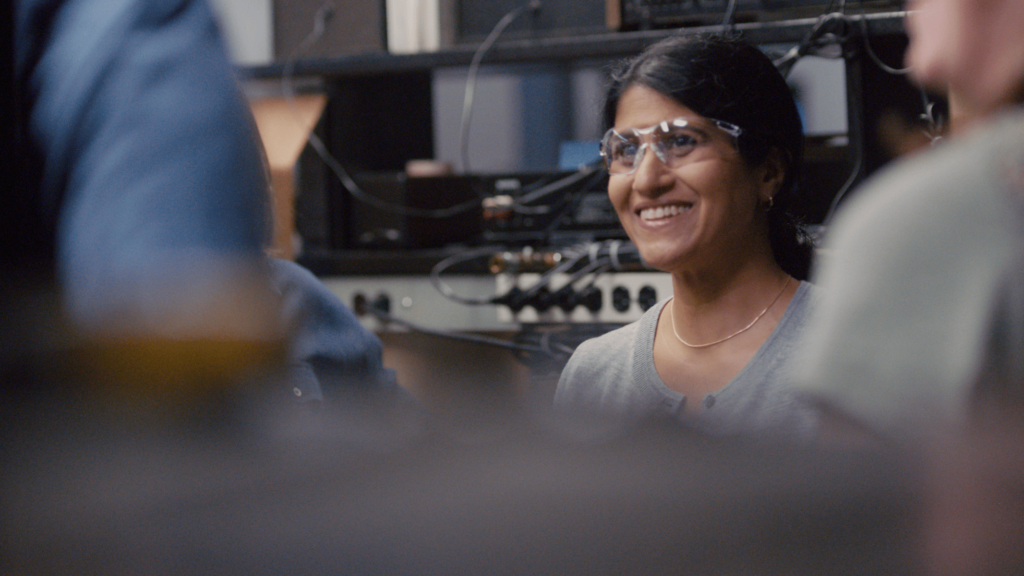Your title says you are 3M’s Chief Science Advocate. What is that and how did you get that role? How do you help the company advocate for science?
My official title is Corporate Scientist and Chief Science Advocate. As a Corporate Scientist at 3M, I currently lead Applied Technology Development projects for our Industrial Adhesives and Tapes Division, one of 3M’s largest industrial business. In the last 27 years at 3M I have worked on several material and product platforms and have 68 patents on a variety of innovations. Many of my early patents are on closures for disposable diapers, although I had never seen a diaper before I joined 3M!
Two years ago, our senior leadership called on me to become the company’s first ever Chief Science Advocate. It’s a huge honor to be a part of 3M’s longstanding commitment to science, STEM equity and to help inspire the next generation of scientists. I see at least three main ways we can advocate for science:
– A for building awareness and appreciation of science in our everyday lives. Science is often
invisible and taken for granted.
– B for breaking down barriers and boundaries and biases. Science is not just for geniuses or just
for men. It’s a big tent where everyone can have satisfying science careers.
– C is for championing and communicating science with context – what scientists do, and, how
science can solve problems—just like how at 3M we solve problems for our customers.
In my role, I interact with students, educators, professionals and the public around the world and foster a global conversation on the importance of science. I also write extensively on the above topics. One of my primary objectives is to help people see the impact of science in their daily lives, which I think we all agree is more important now than ever!
Why is your work important to you? What drives you? 2020 has certainly not shaped up the way any of us envisioned it.
The work of the global scientific community remains critical for several reasons. First, science and science experts can help dispel misinformation that can creep into conversations when something new appears on the scene. Routine collection of facts and evidence through testing and observation has been part of science and health medicine since the very beginning. This evidence and expertise can guide our response and our behavior. Second, science is the “great problem solver.” We know that scientists are working hard on finding both effective treatments and a vaccine for COVID19. I am guided by the health experts and I am grateful that I work at a company where scientific knowledge is valued, even in times of great uncertainty.
I also take a great deal of pride in the nature of my work with customers to solve their problems. Even though I am not on the front lines working directly on COVID19 solutions like a vaccine, I am inspired to know that my work in creating the next generation of adhesives can help businesses to return to a level of normalcy during challenging times. I am excited about the work we are doing to continually innovate to develop sustainable bonding solutions.
And with estimates of the world population topping nearly 10 billion by 2050, we need science to address an entire range of global challenges we will continue to face—from pandemic preparedness and health care, to access to renewable energy, transportation and supply chain issues and even things we never thought of like distance learning. For 117 years, 3M has been a company that is steeped in using science to solve problems. I am driven by the fact that we care deeply about science and want the world to see the impact that science has on our daily lives. And we need more people standing up and doing the same. If we are to inspire and motivate the next generation of scientists, we need advocates and role models to step up and speak out about the important, even lifesaving, role that science plays in our society, our families and for us as individuals.
